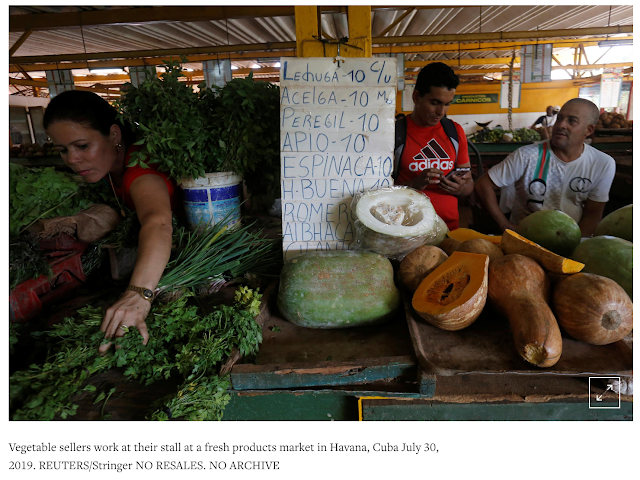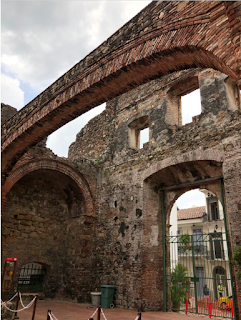Reuters is reporting ("Cuba, battling economic crisis, imposes sweeping price controls") that the Cuban State has announced a series of sweeping controls on prices in the public and private sectors in the wake of the mounting economic crisis that is deepening in Cuba. That crisis, in turn has been made much more acute by the crisis in Venezuela (a principal supporter of the Cuban economy) with respect to which neither Russia nor China has provided an effective substitute. More importantly, perhaps, is the growing effects of the trade restrictions and targeted sanctions imposed by the Trump Administration in response, in part, to Cuba's support of the Maduro regime in Venezuela (e.g., (1) The Pivot Toward the Caribbean; and (2) Announcement
of Changes in US Policy Toward Cuba and the Caribbean Region: Remarks
of US Secretary of State Michael R. Pompeo; Speech of John Bolton
(anuncia nuevas sanciones para Venezuela, Cuba y Nicaragua) 17 April
2019).
The reporting by Marc Frank for Reuters follows. A few small points.
First, price controls will have more symbolic than real effect. Even in the small private sector, the state maintains a substantial control on pricing even before the freeze.
Second, the object appears to have been, as suggested in the anonymous quotes, to suspend the market during this new "special period" and to rethink the nature of its complementary role in economic planning. For the moment that might involve redirecting such production to meet shortfalls at the retail level.
Third, the increased wages and pensions will have a negative effect on the economy. The problem right now is that already too much cash is chasing too few goods. The result of these increases will be either inflation or an inflated pricing scheme for the black market or barter transactions.
Fourth, as a result, it will be difficult to both stimulate production (in the absence of state subsidies or orders) and combat inflation (while pouring more money into an economy where there are production shortfalls and no hard currency to meet demand with foreign goods).
Fifth, this planning will only work if Russia, China, and Venezuela (the key players, there are others) will step in with subsidies. These traditionally involve overpaying for Cuban services (directing the surplus to the state), or underpricing goods and services provided to Cuba. Much of this will likely remain opaque and hard to gauge.
Sixth, enforcement, as suggested by Marc Frank, will likely be difficult and itself expensive.
The tactful warnings of Pavel Vidal and Andrew Zimbalist (quoted in the reporting) will not be heeded. But that is because the state ideology makes those approaches incompatible with the fundamental vision of the Cuban political-economic model (Cuba's Caribbean Marxism).
































